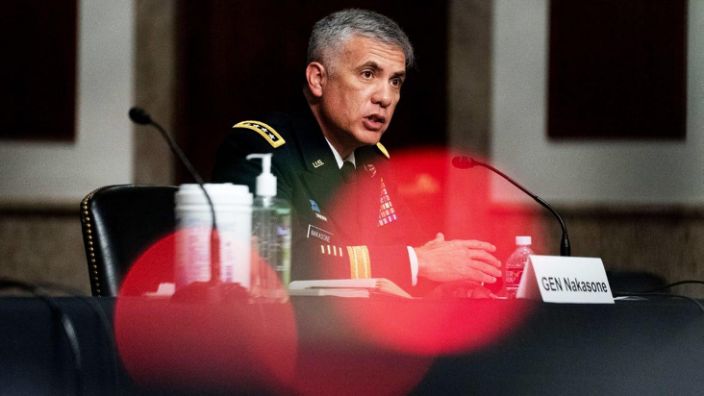NSA Opens Door to Domestic Internet Spying, Privacy Advocates Say

The latest king-sized, disastrous hack into U.S. government and corporate data servers is prompting the head of the National Security Agency to suggest that a surveillance giant built to look at foreign threats might need even greater powers to spy on internet usage domestically.
Doing so, privacy advocates say, jeopardizes an already weakened four-decade old compromise of national-security surveillance. NSA access to the digital trails of U.S. persons and foreigners transiting domestic communications infrastructure is supposed to require a warrant from a secret court specifying specific suspected worrisome activity. But it’s unclear how early detection of foreign-borne digital threats, particularly at scale, could operate within the same legal paradigm.
“Like clockwork,” said Sen. Ron Wyden (D-OR), a member of the intelligence committee, “advocates of expanded surveillance are trying to exploit an intelligence failure.”
Gen. Paul Nakasone, the director of the National Security Agency and its conjoined military twin Cyber Command (CYBERCOM), did not offer any such answers in recent congressional testimony about the devastating SolarWinds hack, in which malware inserted into IT software used by several U.S. government agencies resulted in data exfiltration that Microsoft’s Brad Smith has called “the largest and most sophisticated” cybertheft yet. Instead, Nakasone highlighted to legislators what he described as a dangerous blindness in cyberspace created by holding the domestic internet off-limits to him.
“We truly need to look at the ability for us to see ourselves and right now it’s difficult for us to see ourselves,” Nakasone testified on Thursday to the Senate Armed Services Committee. Adversaries like China and Russia “are operating with increased sophistication, scope [and] scale, including operations that can end “before a warrant can be issued,” he warned.
“If we have a problem where we only see our adversaries when they operate outside of their country and we don’t see them when they operate inside our country it’s very difficult for us to be able to—to, as I say, connect those dots,” Nakasone said. “That’s something…

